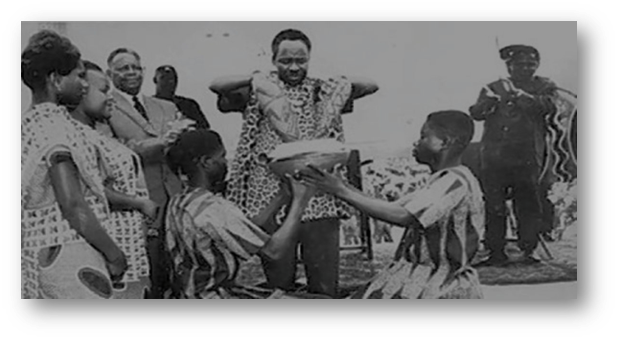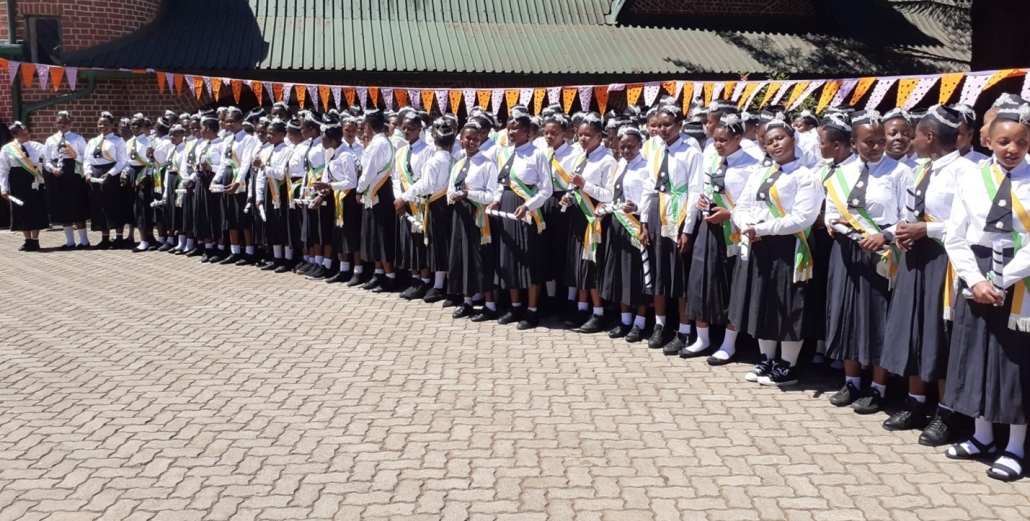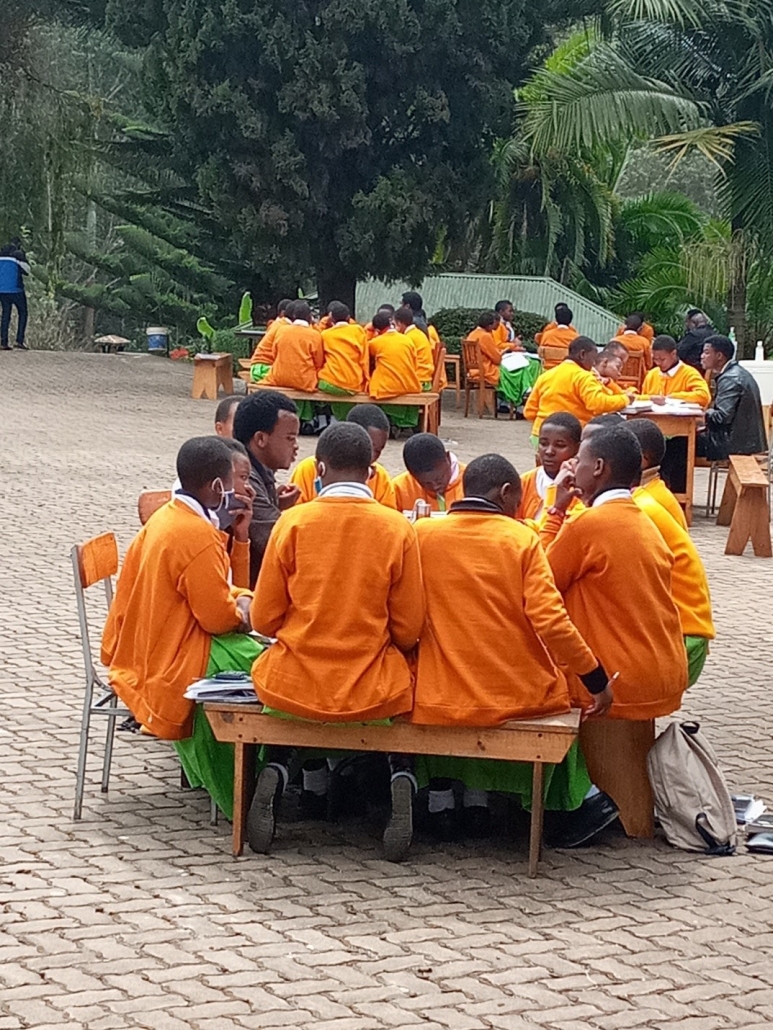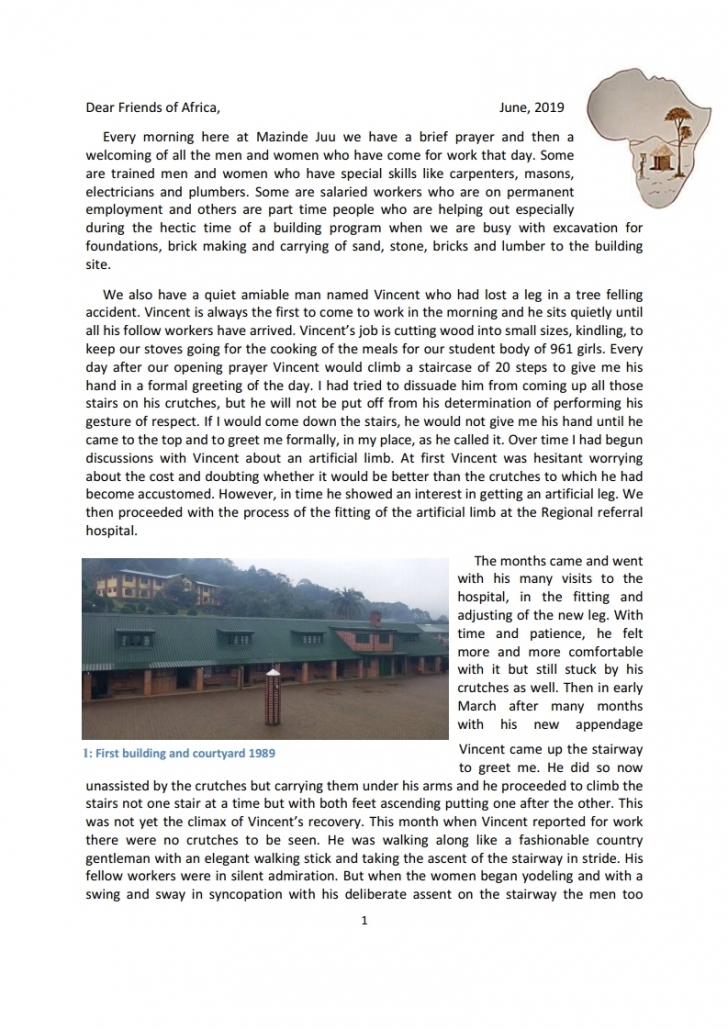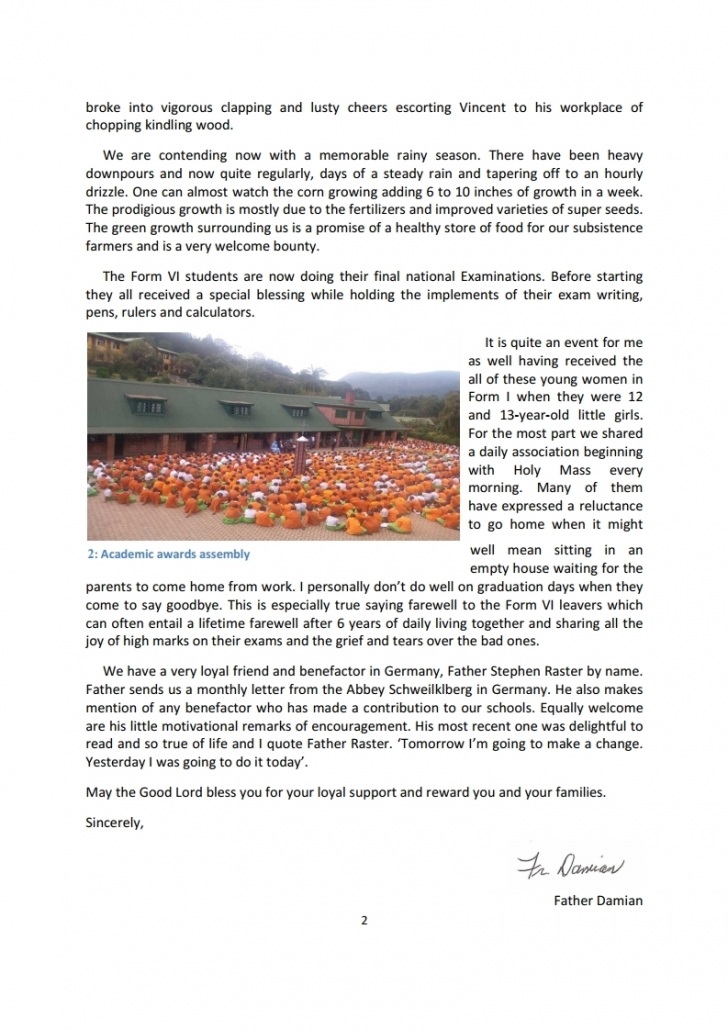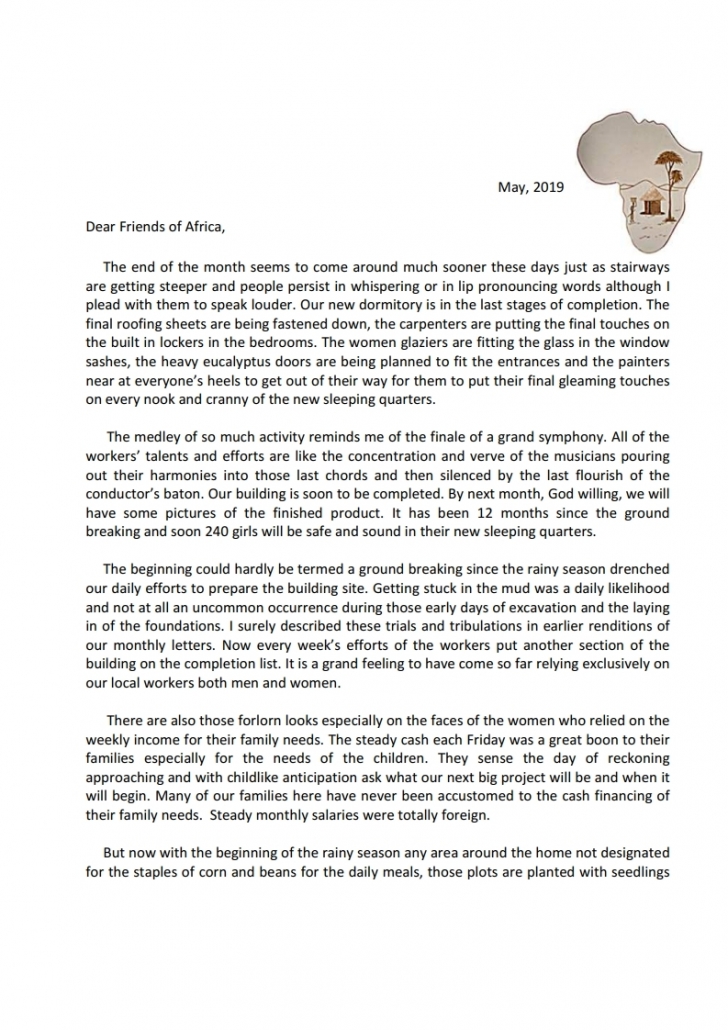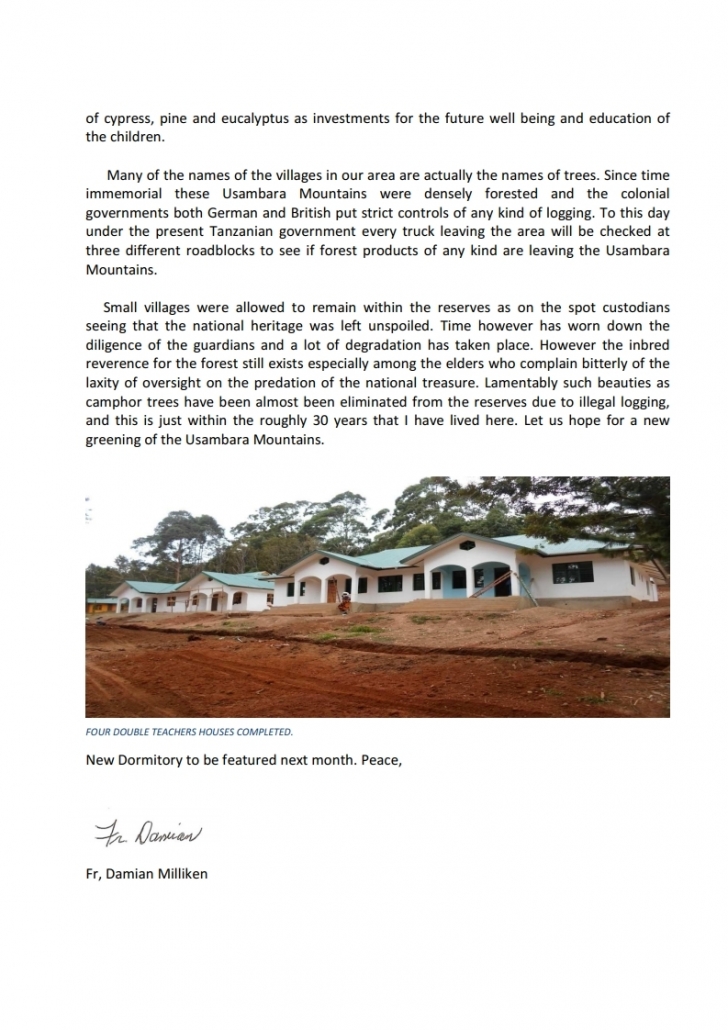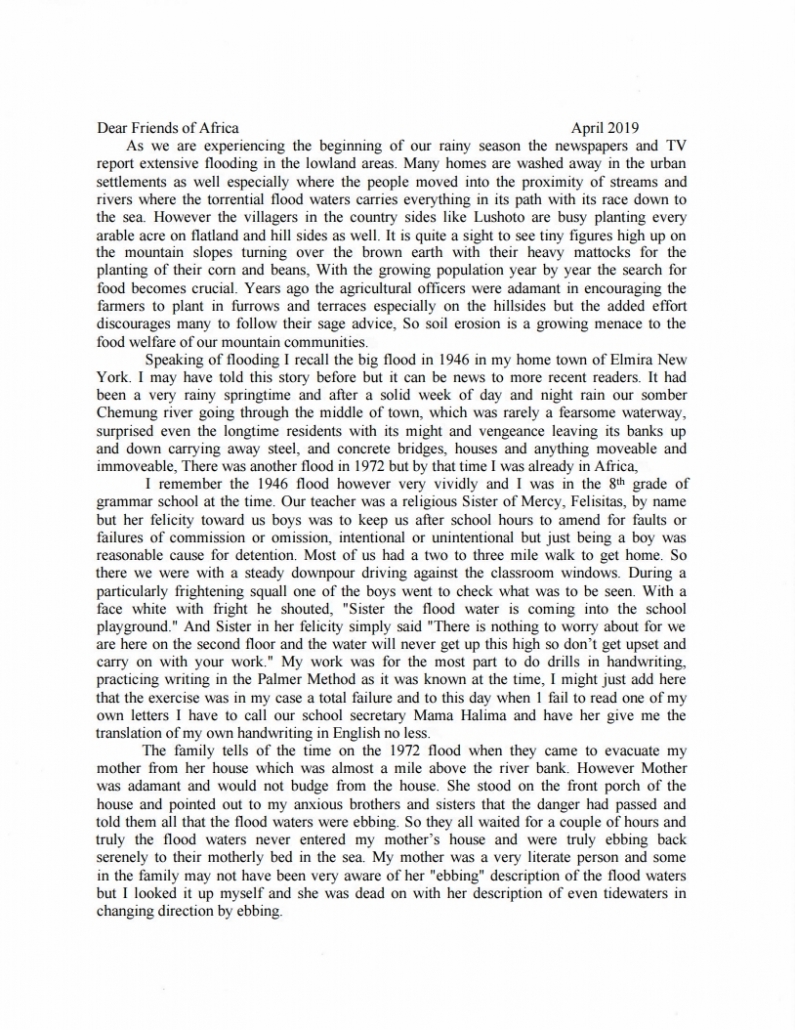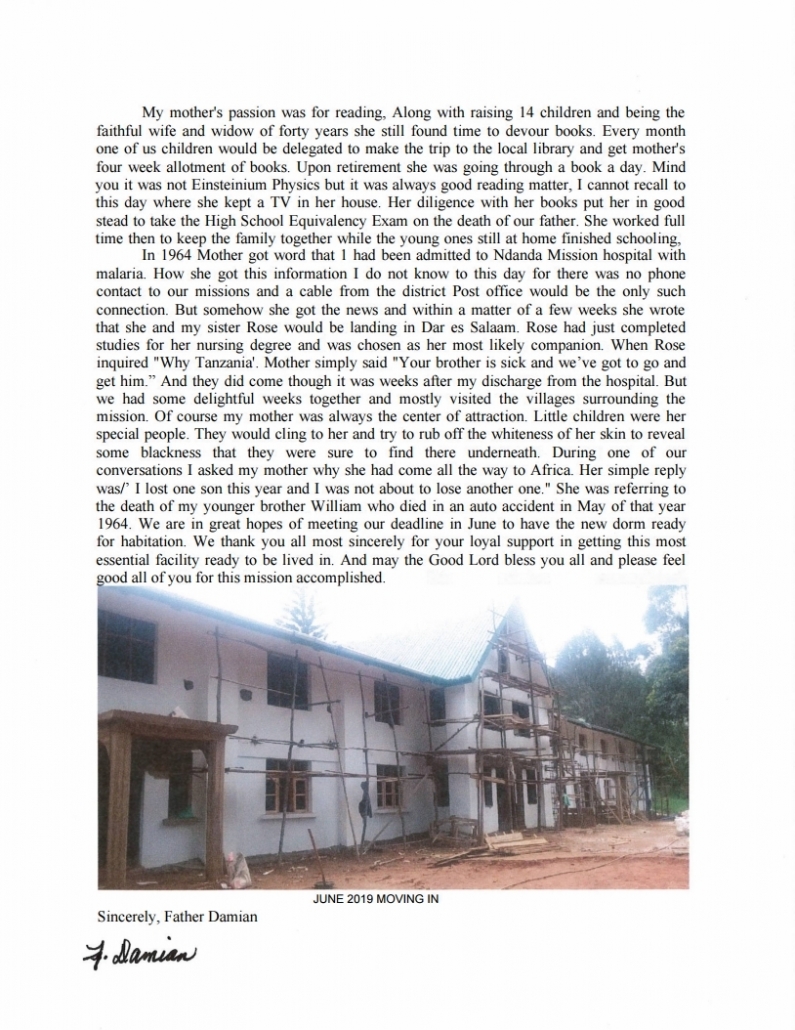Dear Friends of Africa, March 2017
In any society including our African villages there are those people who stand out, the ne-er-do-wells by the score, that is the do nothings, the mafia type who thrive on the fear they instil to achieve their nefarious ends, then the common folk who make up the majority and get on with living. Those who have had the good fortune of schooling live afar at their jobs; teachers, doctors, nurses, engineers and other professionals. But the ones who top the list as doers at least in keeping families together in our community are the mothers and especially the single mothers. In some instances, they are the widows. In many cases the mothers are single when the father has bailed out of the partnership leaving the care of the children to their mother. Time and time again I have found these single mothers indomitable. A recent case is an example but it is not at all unique.
Her name is Salome. She has 8 children, three of children are still schooling the other five have jobs and do what they can to help out at home. I never hear mention of the father. Throughout my years in the Magamba area Salome and her children have always been intermittent partners in any building and other school endeavours that have engaged me. Hand crushed gravel was one of Salome’s specialties. On Saturdays from dawn to dusk the tap, tap, tap of rock on stone resonated from Salome’s compound. There would be Salome with an infant on her back and every older child sitting amidst a growing heap of gravel. I was appalled seeing the brothers and sisters banging rocks on stones making crushed stone for my building projects. I asked Salome about using hammers but she replied that they were too expensive. So I took the boys to my tool shed and issued them with enough hammers to keep the family profitably pounding. Salome would borrow but never beg and always cleared her debt before the pay by date.
Two weeks ago, a tragedy befell the family. It was a Sunday afternoon when Salome had returned home after Mass. She decided to pick the avocados from her little orchard and she engaged an agile little boy to climb the trees to harvest the fruit. She was delighted with the quality of the harvest and paid off her helper with a full basket of fruit from the bounty of the picking that afternoon. But on surveying the trees later in the day she spied a branch that was laden with fruit but obviously overlooked by herself and her little helper. Salome is a tiny woman but with a tractor size determination in caring for her family. So she went up the tree herself to gather the fruit from the final branch. But the avocado tree is a jealous one and not forgiving of intruders on her claims. The limb Salome seized to reach for the ripened fruit snapped and Salome went down with an added weight of the avocadoes in her overfilled shawl. As she crashed earthward through the branches she fractured multiple ribs and her spine as well. She was rushed to our local district government hospital where the initial care was given mostly regarding the alleviating of pain inflicted by the fall but nothing further. She was then sent to the government referral hospital in Dar es Salaam, a full day’s journey from Lushoto. Lying on her back, over a period of a month Salome was repeatedly scheduled for an operation but each time the appointed day arrived the procedure would be cancelled. Salome did not have enough blood. The children had all donated but the doctors were still not satisfied. Finally, the last Thursday of February Salome was taken to the operating theatre. After a long delay the patient was returned. The report this time was the surgery could not take place. The reason given was the operating table was broken and not functioning. So the daily and nightly vigils go on. I have visited the stalwart mother twice since her hospitalization in Dar es Salaam, both for her sake and to bolster the spirits of the children who surround her bedside like guardian angels. Her radiant smile belies the pain that must come with all the broken bone wreckage in her tiny body. On my first trip after our prayers Salome gestured to me to bend closer; she wanted to whisper something to me confidentially. It was a business deal. She told me that she had delivered two trucks loaded with fire wood for our parochial school, St. Benedict’s. One truck I should pay $50 for both the wood and the transport. The second was for the school but for me not to let her children know that it was a donation.
The last time I visited Salome was the day before the last scheduled and aborted surgery and she was alone. I had the sacraments with me and we prayed together the anointing and the Holy Communion. Just as we were concluding our prayer a nurse came and asked me to give the sacraments to a woman who had been injured in a motorcycle accident. These machines by the way account for three quarters of all the hospital casualties today. So after taking this added call I made my way down the corridor. Passing Salome’s ward she beckoned me to come in again. This I did straight away and she then whispered softly. “You left something out of the anointing.” Then she went on “Father you anointed me, my head, my eyes my ears and mouth and my hands too but you forgot my feet.” So I fumbled among the bundled sheets and covers finally locating a foot which I anointed. “That does the trick,” I assured her, at which juncture she took my hand with oil still shining on my fingers, kissed them and then let me go my way. But Salome is the constant intruder on my thoughts and prayers where ever I am these days. She has no feeling below the waist and the nurses tell me that she will never walk again. But I have no doubt that somehow or other our Salome will get around. She has three children still in school and a determination that can grow legs or possibly wings if she has to. Her youngest daughter, Felista, is with me in Mazinde Juu in her second year of Secondary school. She comes nightly to my office after night study to say good night on her way to her dorm. She is the latest version of Salome, vibrant, cheerful and a delight to be near. She is a perfect replica of her mother in body and soul.
Another quaint story comes from our Congregation Superior from Germany, Archabbot Jeremias Schroder. He had come to our mission at Sakarani here in the Usambara mountains and was meeting with the missionaries stationed here myself included. He was accompanied by an African priest from West Africa and the discussion one evening was quite lively. The topic was about witchcraft and superstition, mixing the beliefs from East Africa and West Africa. I was able to add some notes about my own observations here and added some Irish traditions as well. I had some authority on this topic for I had a similar discussion with friends years back when I lived in the south of Tanzania. I believe I must have shown a bit of distain in some of my remarks about the local superstitions at that time. Later when making a visit to the home of one of the fellows who was also at that discussion he let me borrow a book from his home library. He was by the way a very well educated African government official at the time. The book he let me borrow was entitled “700 Irish Superstitions” He, in a very gentlemanly manner wanted to let me know that we all need to call a spade a spade when it is called for. Getting back to our recent meeting at Sakarani in an all embracing discussion on witchcraft and sorcery Father Archabbot Jeremias related an encounter he had years back on a visit with a former classmate in Vienna. His friend was now a practicing Psychiatrist in the former hometown of the famous doctor Freud. As he went into his friend’s practice he noticed a gilded gold horseshoe hanging over the doctor’s front door. Being rather curious seeing that symbol of good luck over the door of a psychiatric clinic he asked his friend in jest, of course, if the noted psychiatrist actually believed in this good luck charm. The doctor replied good naturedly “Of course not” and when Jeremais asked further why he ever bothered having it over the door. And the charming retort came, “Because it works.”
To conclude I would like to quote from the local newspaper “The Citizen” of March 22 from an article about a recent altercation between the Regional Commissioner of Dar es Salaam and a local News Agency. The statement relates to the Commissioner’s storming the offices of the news Agency with armed police for the Agency’s failing to report some personal accusations that the RC wanted to put on the air about one of his vocal critics. The quotation is now a response made by Ms. Hellen Kijo-Bisimba the National Director of the Legal and Human Rights Centre of Tanzania because of the public support the President gave for the Commissioner’s high handed action. The daughter of Ms. Kijo-Bisimba was a student some years ago at Mazinde Juu and we are happy to hear solid comments coming from the women of Tanzania who have been silent for so long on abusive behaviour going unaddressed. (Quote from the Citizen) “Dr. Kijo-Kisimba said Mr. Mokonda’s actions were a blatant violation of freedom of the press (Storming the Agency’ offices). What Mr.Makonda did was an act of hooliganism. He also abused his position by attempting to force an independent media organization to air content that was purely of his personal interest. “He made a mockery of the rule of law.” she said. Dr. Kijo-Bisimba urged the public to step up pressure on the President Magufuli to sack Mr. Makonda before the controversial RC did further damage. She also criticised Dr. Magufuli’s assertion that he collected candidacy forms of his own volition ahead of the 2015 Presidential elections, and that nobody could tell him what to do to appoint or to sack. “It is not the candidacy forms that gave him the presidency, wrote Hellen, but the Tanzanians who voted for him. He’s obliged to listen to those who put him in power and put their interests first.”
This was a refreshing comment on the events of the day especially coming from an intelligent committed woman. Let us hope she keeps her job and stays around for a long time in her critical position. Our girls at Mazinde Juu have every reason to look up to her a former school Mom and follow her courageous example. In that same edition of the Citizen by the way there was another article which claimed that Africa was not moving forward because the voices of the women were not heard nor heeded. Let us hope that Mazinde Juu fulfils the role to correct that anomaly. Thanking you for your faithful support and belief in our cause for women’s education.
Happy Easter it is Life we celebrate.
Father Damian


